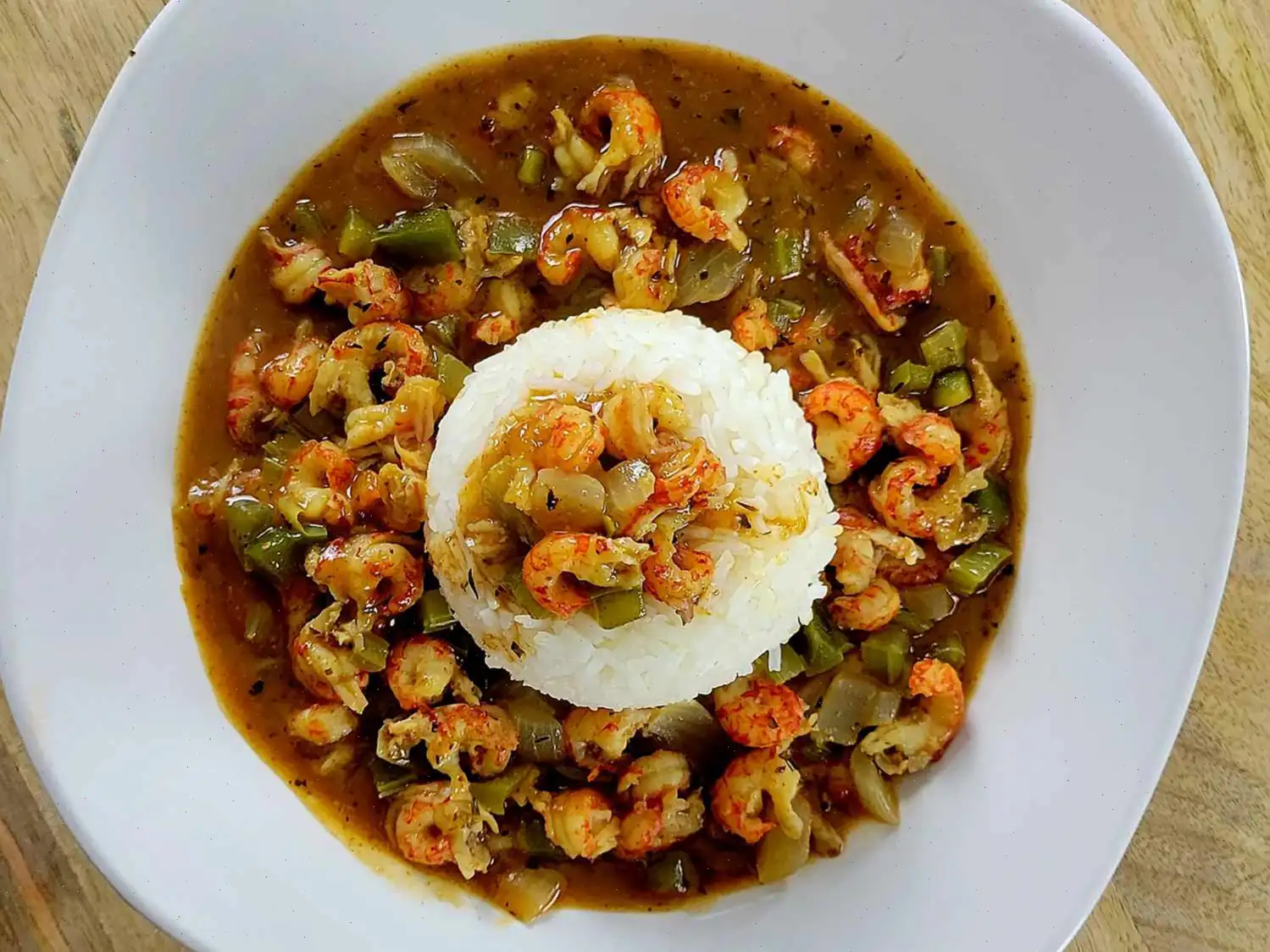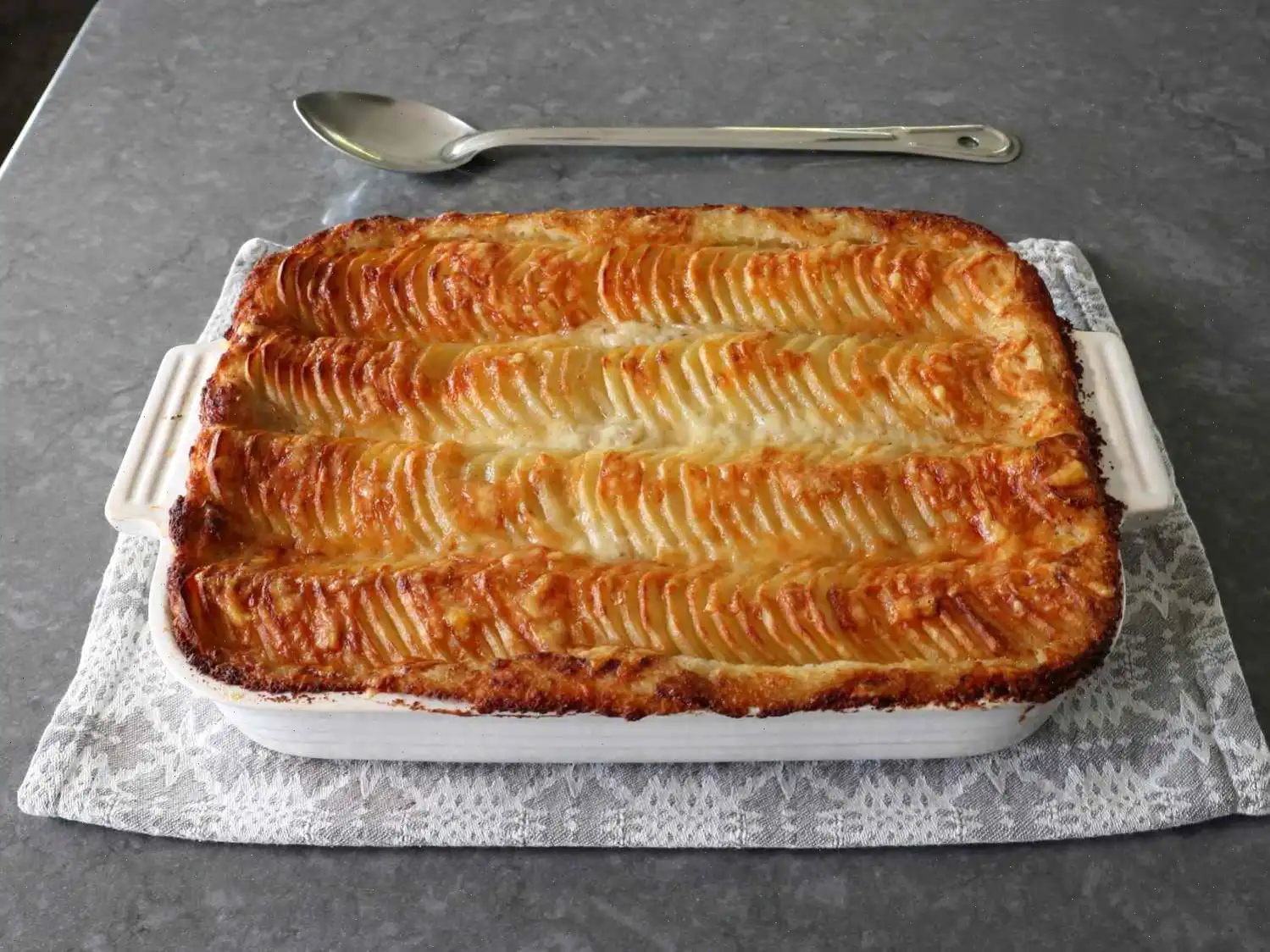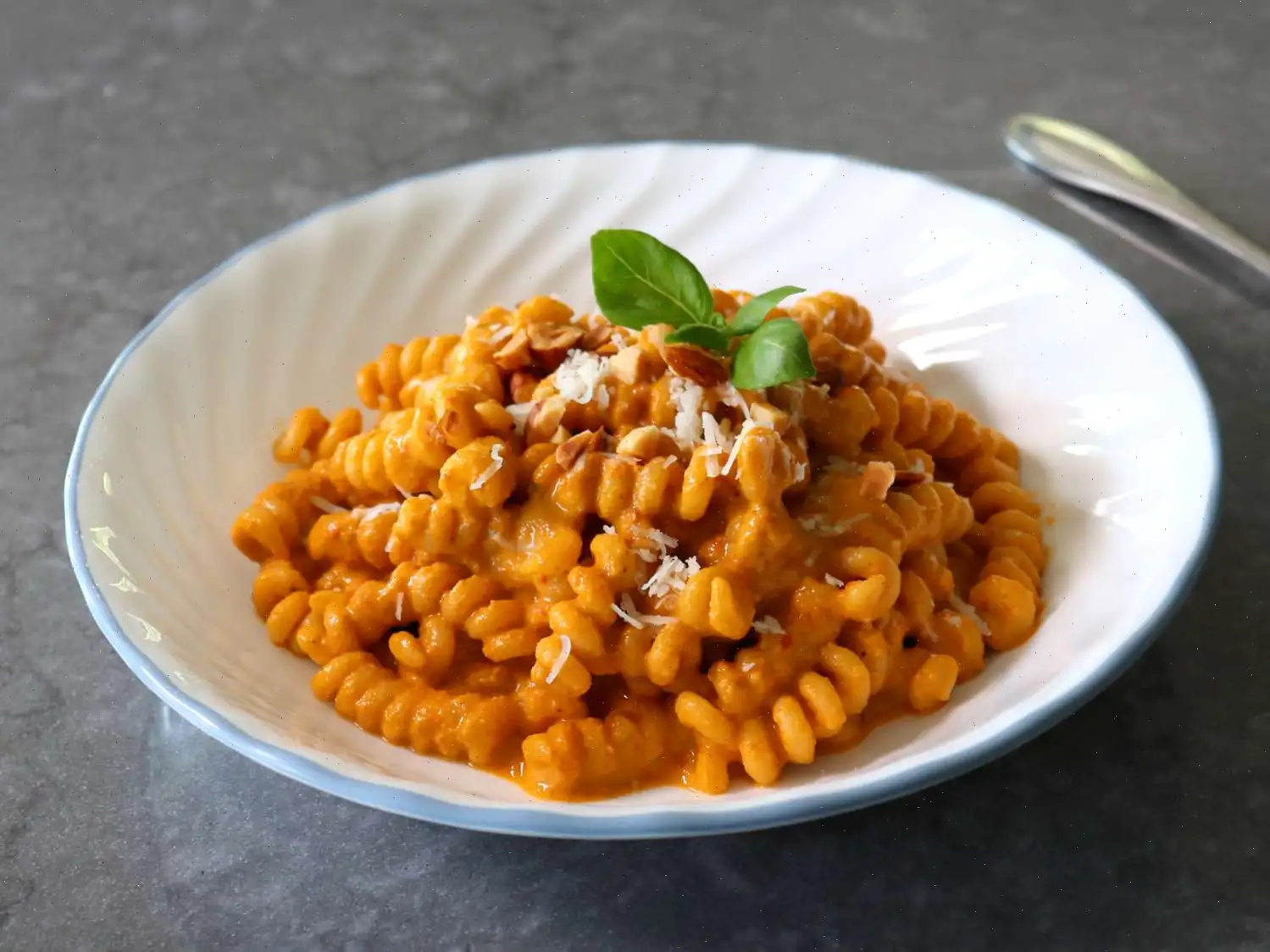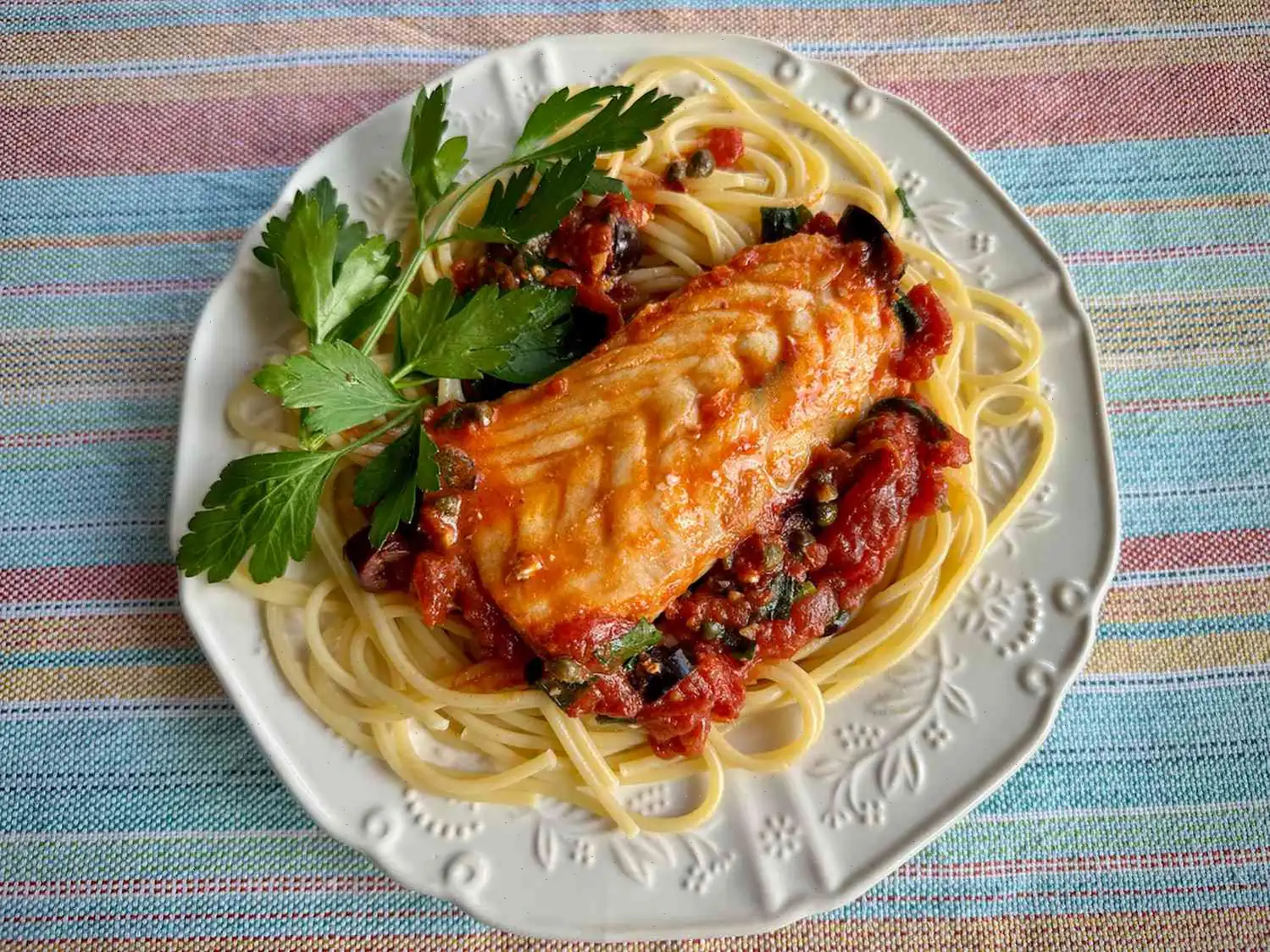
Receta de Etouffee de Cangrejo de Río
El Crawfish Etouffee es un plato clásico cajún lleno de sabor y picante. Lleva colas de cangrejo de río tiernas cocinadas en una salsa rica y sabrosa hecha con verduras, especias y un poco de mantequilla. Normalmente se sirve sobre arroz y es perfecto para una noche acogedora en casa o para recibir invitados. Sigue esta receta sencilla para preparar un delicioso Crawfish Etouffee que te llevará directamente a los pantanos de Luisiana.
Este guiso reconfortante combina una base tostada y aromtica con mariscos ya cocidos, logrando un plato intenso y equilibrado, ideal para compartir en la mesa.
Rinde
Alrededor de 6 raciones generosas
Ingredientes
- 5 cucharadas de mantequilla sin sal
- 5 cucharadas de harina de trigo comn
- 1 cebolla amarilla mediana, picada muy fina
- 1 pimiento verde, cortado en dados pequeos
- 2 ramas de apio, troceadas
- 4 dientes de ajo, bien picados
- 2 cucharadas de mezcla de especias cajn (usar en dos etapas)
- 1 cucharadita de pimienta de cayena (opcional)
- 2 tazas de caldo de pescado o de mariscos
- Sal y pimienta negra recin molida, al gusto
- 450 g de colas de cangrejo de ro ya cocidas
Preparacin paso a paso
- Coloca una olla amplia y de fondo grueso a fuego medio. Derrite la mantequilla con calma hasta que quede completamente lquida.
- Incorpora la harina poco a poco, mezclando sin parar hasta obtener una pasta homognea. Cocina este roux unos 10 minutos, removiendo constantemente, hasta que adquiera un tono similar al de la mantequilla de man. Si buscas un color ms oscuro y sabor ms profundo, prolonga la coccin unos minutos adicionales.
- Aade la cebolla, el pimiento, el apio y el ajo. Sofre entre 5 y 7 minutos, hasta que las verduras estn blandas y desprendan un aroma intenso.
- Agrega la mitad de las especias cajn y la cayena si te gusta el picante. Vierte el caldo poco a poco mientras mezclas. Ajusta de sal y pimienta.
- Reduce el fuego y deja hervir suavemente durante unos 15 minutos para que la salsa tome cuerpo y los sabores se integren.
- Incorpora con cuidado las colas de cangrejo de ro, mezcla y apaga el fuego. Tapa la olla y deja reposar unos minutos para que el marisco se caliente sin resecarse.
- Prueba el guiso y, si deseas un perfil ms marcado, aade el resto de la mezcla cajn antes de servir.
Consejos prcticos
- Si no tienes caldo de pescado, uno de pollo suave funciona perfectamente y mantiene un resultado sabroso.
- Para una versin menos intensa, puedes sustituir la mantequilla por aceite vegetal.
- Lo prefieres ms espeso? Disuelve 2 cucharadas de maicena en un poco de agua fra y agrgala al guiso caliente, removiendo hasta alcanzar la textura deseada.
Informacin nutricional aproximada (por porcin)
- Caloras: 196 kcal
- Grasas totales: 11 g
- Grasas saturadas: 6 g
- Colesterol: 112 mg
- Sodio: 1326 mg
- Carbohidratos: 10 g
- Fibra: 1 g
- Azcares: 2 g
- Protenas: 15 g
- Vitamina C: 18 mg
- Calcio: 45 mg
- Hierro: 1 mg
- Potasio: 423 mg
*Los valores diarios se calculan en base a una dieta de 2.000 caloras.
El Crawfish Etouffee es un pilar de la cocina cajn y criolla, con orgenes que se remontan a los pantanos de Luisiana. El nombre "etouffe" proviene de la palabra francesa que significa "asfixiar" o "sofocar", lo que describe perfectamente la tcnica de cocina de cocinar mariscos lentamente en una rica y sabrosa salsa. Originalmente, este plato fue creado por los colonos franceses que adaptaron sus recetas clsicas a los camarones de ro, conocidos como crawfish, que se encontraban en abundancia en los ros y pantanos locales. Con el tiempo, el Crawfish Etouffee se convirti en un plato muy querido para reuniones familiares y celebraciones festivas en la costa del Golfo de Mxico.
Caractersticas Regionales
Aunque el Crawfish Etouffee se disfruta en todo Luisiana, su preparacin vara ligeramente segn la regin. En Acadiana, el corazn del pas cajn, el plato suele tener un roux ms oscuro y un condimento ms picante, lo que resalta los sabores intensos y ahumados. En Nueva Orleans, donde la influencia criolla es ms fuerte, la salsa puede ser un poco ms ligera y suele incluir una mayor variedad de verduras y hierbas. Estas variaciones regionales reflejan la mezcla de tradiciones culinarias francesas, espaolas y africanas que definen la rica cultura gastronmica de Luisiana.
Diferencias con Platos Similares
El Crawfish Etouffee a menudo se compara con el gumbo, otro plato icnico de Luisiana, pero ambos son distintos. El gumbo generalmente tiene una consistencia ms lquida, parecida a una sopa, y a menudo contiene okra o polvo de fil como agente espesante. Por otro lado, el Etouffee tiene una base ms espesa, parecida a una salsa o gravy, hecha a partir de un roux y una combinacin de la "Trinidad Cajn" de cebollas, apio y pimientos. Aunque ambos platos pueden llevar crawfish, camarones o cangrejo, la textura y la intensidad del sabor son lo que distingue al Etouffee.
Lugares Donde Se Sirve Comnmente
El Crawfish Etouffee es un plato festivo y verstil, comnmente servido en reuniones familiares, hervidos de mariscos y restaurantes locales de Luisiana. Tradicionalmente, se acompaa con arroz blanco al vapor, lo que ayuda a absorber la rica salsa. Adems, aparece con frecuencia en los mens durante las celebraciones de Mardi Gras y otros festivales regionales, donde tanto locales como turistas disfrutan de la combinacin nica de especias y carne tierna de crawfish.
Datos Interesantes
- Tradicionalmente, la temporada de crawfish va desde finales del invierno hasta principios del verano, lo que hace que el Etouffee sea especialmente popular durante las celebraciones de primavera.
- Algunos chefs prefieren usar crawfish vivos para garantizar un sabor mximo, mientras que otros usan colas congeladas por conveniencia sin comprometer el sabor.
- El roux, una parte fundamental del plato, puede tardar hasta 20 minutos en alcanzar el color perfecto de mantequilla de man, y dominarlo se considera una prueba de iniciacin para los cocineros cajn.
- Aunque es un plato clsico de Luisiana, el Crawfish Etouffee ha ganado reconocimiento internacional y a menudo se sirve en restaurantes gourmet fuera de los Estados Unidos.
- Muchas familias tienen mezclas secretas de especias que se transmiten de generacin en generacin, lo que da a cada Etouffee un toque nico regional o personal.
Preguntas frecuentes sobre Receta de Etouffee de Cangrejo de Río
Compartir
Comentarios
Gregory Perez
08/04/2023 05:20:08 PM
Usé un vino blanco seco en el caldo.
Steven Moore
02/09/2025 01:04:31 AM
¡Absolutamente fantástico! No quedó ni una gota.







